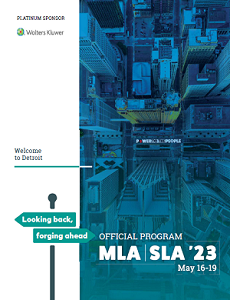Paper: Program Description Abstract
Information Management
In Person
On Demand
Session: Education Papers 2
Developing and Assessing Data Workshops Supporting Local and Global Research and Service Projects
Thursday, May 18, 2023
2:30 PM - 2:45 PM EDT
Location: 251C
- MH
Margaret Henderson, AHIP
Health Sciences Librarian
San Diego State University Library
Ramona, California
Presenter and Author(s)
Background: Growing Research Data Services (RDS) is a [university name] Library goal, and data management training for students was requested by faculty and the graduate school dean, so the health sciences librarian secured a NNLM grant to develop a series of workshops. Funder emphasis on data management and sharing has increased the need for libraries to help train student researchers in these skills. This new series of data workshops is designed to introduce health sciences students to open data, and help them learn how to manage, analyze, and visualize data. The goal is to create a series of workshops that can be presented to students and faculty to support their research projects, using modules that can be reused in other contexts.
Description: The “Finding, Managing, and Analyzing Data for Your Health Sciences Research” workshop series was developed to help students find open data on health, demographics, the environment (eg. climate change), and geographical information that can be used to understand and support the communities they work with. Health sciences students are encouraged to conduct research or service projects in the local area, or any of the international sites where health sciences faculty conduct research. For example, the School of Public Health has study abroad, international courses, and research activities in Germany, Chile, Mexico, Peru, Uganda, Nigeria, Brazil, Costa Rica, Columbia, Vietnam, and India. Finding government and other open source data will be demonstrated, and methods to combine data from different sources will be reviewed. Workshops will also cover ethics, social justice, health disparities, and the value of open science.Some students also have the option of a capstone research project, and secondary analysis will also be presented as an option for that type of project.
Conclusion: Formative assessment will be administered at the end of each workshop, and a month-out survey will check if participants were able to find the data they needed, as well as the status of their projects. Follow up surveys will be sent to ascertain the long-term impact of the training. All surveys will help to determine if there is a need to offer refresher workshops, or create a community of practice group, and will also be used to plan or adapt future iterations of the workshop series and any openly available teaching materials.
Description: The “Finding, Managing, and Analyzing Data for Your Health Sciences Research” workshop series was developed to help students find open data on health, demographics, the environment (eg. climate change), and geographical information that can be used to understand and support the communities they work with. Health sciences students are encouraged to conduct research or service projects in the local area, or any of the international sites where health sciences faculty conduct research. For example, the School of Public Health has study abroad, international courses, and research activities in Germany, Chile, Mexico, Peru, Uganda, Nigeria, Brazil, Costa Rica, Columbia, Vietnam, and India. Finding government and other open source data will be demonstrated, and methods to combine data from different sources will be reviewed. Workshops will also cover ethics, social justice, health disparities, and the value of open science.Some students also have the option of a capstone research project, and secondary analysis will also be presented as an option for that type of project.
Conclusion: Formative assessment will be administered at the end of each workshop, and a month-out survey will check if participants were able to find the data they needed, as well as the status of their projects. Follow up surveys will be sent to ascertain the long-term impact of the training. All surveys will help to determine if there is a need to offer refresher workshops, or create a community of practice group, and will also be used to plan or adapt future iterations of the workshop series and any openly available teaching materials.

.png)
